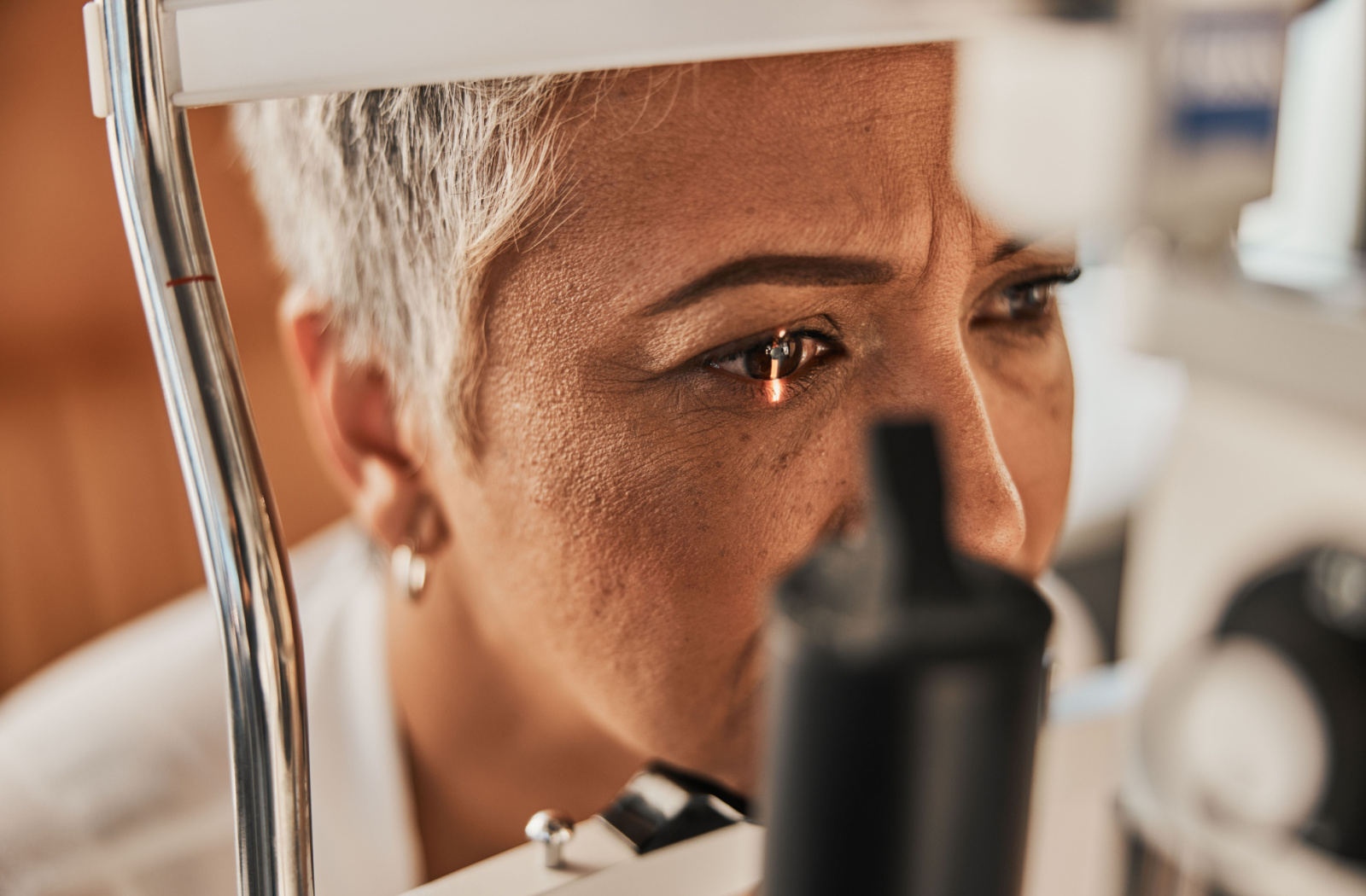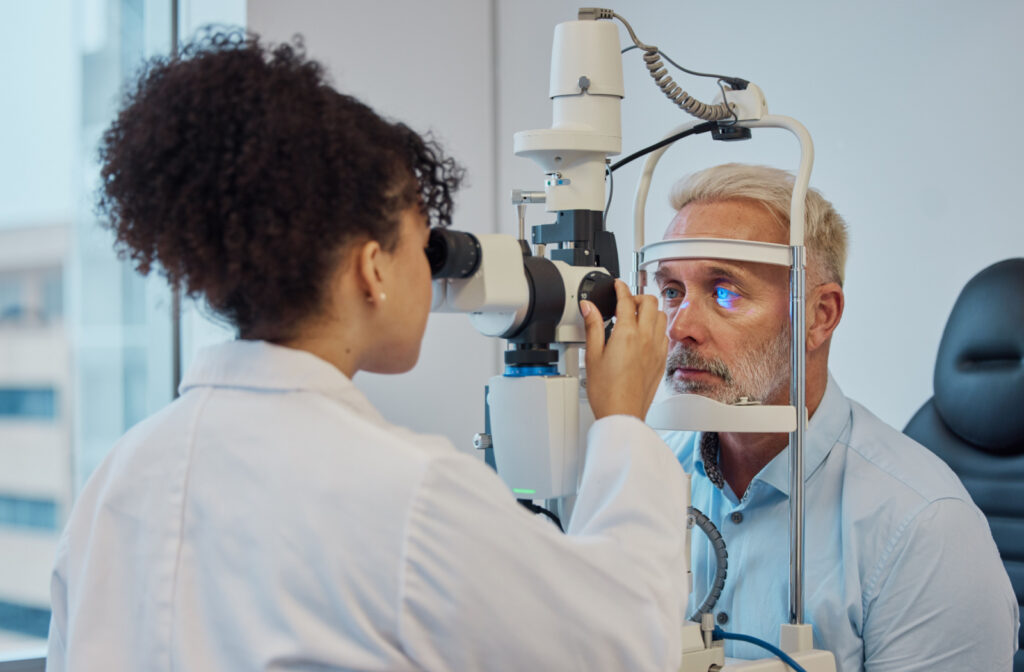A regular eye exam may not be the first thing that comes to mind when you think of diabetes, but it can actually play a crucial role in detecting and managing this chronic disease. In fact, an eye exam can reveal early signs of diabetes before other symptoms start to manifest. This is done through the detection of changes in the blood vessels and nerves at the back of the eye, which can be indicative of diabetes.
How Can Diabetes Affect Your Eyes?
Diabetes is a condition where the body either does not produce enough insulin or cannot effectively use the insulin it does produce. Insulin is a hormone that helps regulate the amount of glucose (sugar) in our blood. When there is too much glucose in our blood, it can cause damage to various organs and tissues, including the eyes.
One common eye complication of diabetes is diabetic retinopathy, which occurs when high levels of glucose in the blood damage the blood vessels in the retina. The retina is a thin layer of tissue at the back of the eye that is responsible for sending visual information to the brain. If left untreated, diabetic retinopathy can lead to vision loss and even blindness.
Other eye conditions associated with diabetes include cataracts (clouding of the eye’s lens) and glaucoma (damage to the optic nerve). People with diabetes are also at a higher risk of developing these conditions, which can further impact their vision and overall eye health.
How Can an Eye Exam Detect Diabetes?
During an eye exam, your eye doctor will check for various signs of diabetic eye diseases, including:
- Changes in blood vessels in the retina
- Fluid buildup or swelling in the macula (the central part of the retina responsible for sharp vision)
- Changes in the shape and colour of the optic nerve
Changes in blood vessels can provide important clues about your overall health, including the possible presence of diabetes. Additionally, your eye doctor may perform a test called optical coherence tomography (OCT), which uses light waves to create detailed images of the retina. This can reveal any changes or abnormalities in the retina that may be indicative of diabetic retinopathy.
How Can Diabetes Affect Overall Eye Health?
Beyond specific eye conditions like diabetic retinopathy, diabetes can also impact overall eye health in various ways. People with diabetes may experience the following:
- Dry eyes: High blood sugar levels can lead to decreased tear production, resulting in dry and irritated eyes.
- Blurred vision: Fluctuations in blood sugar levels can cause temporary changes in the shape of the eye’s lens, leading to blurred vision.
- Difficulty focusing: Uncontrolled diabetes can damage the tiny muscles that control the eye’s lens, making it difficult to focus on objects.
- Cataracts: People with diabetes are at a higher risk of developing cataracts, a condition where the eye’s lens becomes cloudy and impacts vision.
- Glaucoma: Diabetes can also increase the risk of developing glaucoma, a group of eye diseases that damage the optic nerve and cause vision loss.
Symptoms of Diabetic Eye Diseases
While diabetic eye diseases may not always present symptoms in the early stages, there are some signs that people with diabetes should be aware of and seek medical attention if they experience them. These include:
- Blurred or distorted vision
- Flashes of light or floating spots in the vision
- Loss of peripheral vision
- Dark areas or “holes” in the field of vision
- Double vision
- Eye pain or pressure
If left untreated, these symptoms can lead to permanent vision loss. Therefore, it is essential to monitor any changes in your eyesight and promptly seek medical attention if you experience any of the above symptoms.
Prevention of Diabetic Eye Diseases
While diabetic eye diseases can have severe consequences, they can often be prevented or their progression slowed down by following some simple steps. These include:
- Regularly monitor and manage blood sugar levels
- Maintain a healthy diet and exercise regularly
- Attend routine eye exams at least once a year or as recommended by your doctor
- Quit smoking or avoid second-hand smoke
By taking these preventative measures, people with diabetes can reduce their risk of developing diabetic eye diseases and help maintain their overall eye health. Furthermore, controlling diabetes can also prevent or delay the onset of other complications such as heart disease and nerve damage.

The Importance of Regular Eye Exams for People with Diabetes
Regular eye exams are crucial for people with diabetes as they can detect any vision changes early on and allow for timely treatment. Early detection of these changes can lead to better management and treatment options, which can help prevent vision loss.
At Willoughby Doctors of Optometry, we understand the importance of regular eye exams for people with diabetes. Our team is dedicated to providing comprehensive eye care services and helping individuals manage their vision health. Contact us today to schedule an appointment and take control of your eye health.











